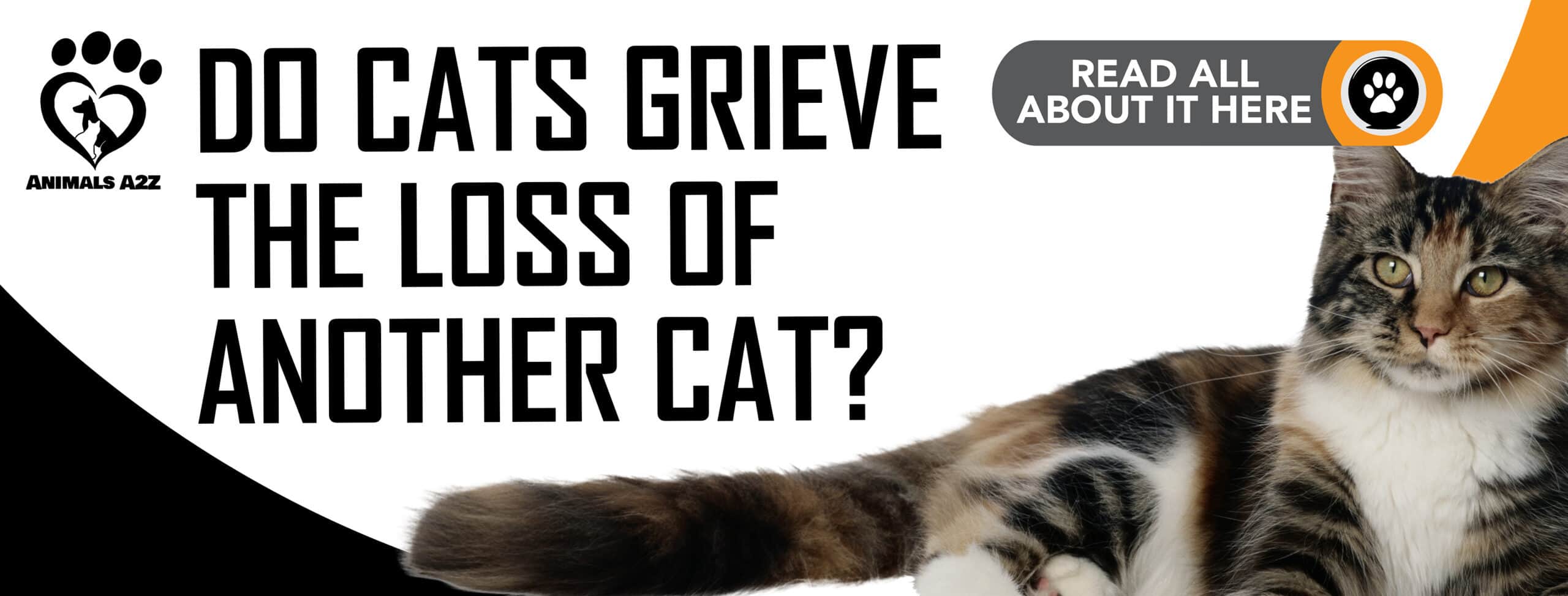Cats often have been stereotyped as aloof or standoffish, but in truth, cats are some of the most sensitive animals out there. Cat owners know that they can build very strong bonds, not just with their humans, but also with the other animals in the household. While it’s impossible to know if cats understand death as much as we do, they’ll definitely feel the loss or the change.
Table of Contents
They’ll know something is wrong
Just like how cats could sense when there’s about to be an earthquake, they’ll know something is wrong with their companions – sometimes even before we do. For us, their human caregivers, we must take this time to prepare. You could and should actually talk to your vet about pet grief as any good veterinarian would be able to help you with counseling.
Signs that your cat is grieving
For some cats, it would seem as if they don’t even notice that one of their peers is gone and just continue with their happy lives. Cats are built to be independent after all. But for some, they could take it badly. They could go to a bit of a depressed state. They may stop eating as much or at all when they’re grieving. If your cat is usually shy, they may be asking for more of your attention when they’re grieving. Alternatively, clingy cats may take time to themselves at this sensitive time.
It is truly heartbreaking when they first realize that their companion is gone for good. They may start crying and looking everywhere for a fellow cat who is never coming home. Let them. Sometimes, it is helpful to let them do this as their way of saying goodbye to their ex housemate.
There hasn’t been much research about how cats deal with grief, but from the little studies and surveys conducted about cats, researchers from the American Society for the Prevention of Cruelty to Animals have found that cats would eat less, be sleeping more, or become more vocal after experiencing a loss of a cat companion. Thankfully, all the grieving cats in the survey all recovered within the next six months.
How to help
Here’s a list of what you can do during your cat’s time of need:
- Be with them. One of the best things you can do right now is to be a positive beacon in your cat’s life right now. If they don’t want to be touched right now, you can always verbally communicate with them. Cats may not be able to understand your words, but they’ll feel your emotions. Reassure them without coddling them.
- Let the music lift their spirits. Just like for humans, music can be soothing and uplifting. Play any kind of music you know your pet associates positively to. If you don’t know what to play, harp music is known to soothe cats.
- A little chemical help. With your vet’s advice, you may give your cat antidepressants. Again, we strongly advice that you get your veterinarian’s approval first.
[crp]
Common questions about cat grief
Should I get another cat for my grieving cat?
Seeing how lonely your cat is when their brother or sister passes, it’s so tempting to get another one thinking that would help. After all, for us humans, when dealing with grief, it’s best to surround ourselves with people who love us. That is not the case with cats.
Having too many new life events happen around your cat can overwhelm them. For now, it’s best to let them cope with the loss and adopt to this new situation first. Let them come to terms with everything. In a few months, once you see they’re ready and would be happy to have another cat companion that’s when you can start getting in touch with your local shelters.
Should I show my cat his dead brother?
As long as there was nothing contagious with your late pet and you are comfortable to do so, you may show your cat the body of their late housemate. Keep in mind that your diseased cat’s body may smell different to how they did when they were still alive and may upset your living cat.
Do sad cats get teary eyes?
Yes, cats do have real feelings. They can be happy, sad, angry, frightened, and many more. They show them in a lot of different ways too. Happy cats will purr, sad cats won’t eat as they normally would, and frightened cats will growl.
When cats are upset, they may whimper or whine like any other human would – but they won’t cry. If your cat gets teary-eyed, it’s not because they’re sad, it’s because their tear ducts may be blocked or their eyes are irritated. If you see your cats shedding tears, please let your vet know.
Conclusion
Losing a pet is difficult for everyone in the household. It’s important to take this time to grieve both for yourself and your cat. Your cat may act differently as to how they normally would at this time, and that’s okay. If you are worried about your cat’s wellbeing, as always, it is advised to let your vet know.


